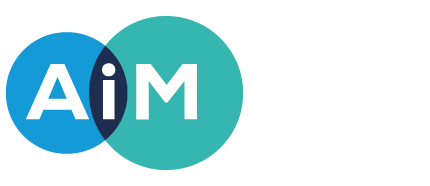Stay in touch with the latest news from AIM and get information on sector grants, jobs and events with our free fortnightly E-News.
AIM Higher – Food Museum
Following a name change, the Food Museum sought help from AIM to undertake a long-overdue review of their memorandum and articles. We spoke to Dr Sharon Goddard, Chair of the Food Museum, to find out more about the process they went through and get her advice on how to tackle this challenge.
What were the challenges you were facing?
We changed our name and brand in March 2022 and made the necessary adjustments to our memorandum and articles documents. In the past we had tinkered with the documents, for example including a maximum length of service for trustees, but the documents dated from the 1950s and we were aware that we needed to have a more thorough review. However since none of us were experts and this always felt like such a huge task and way outside our comfort zone that it was continually put aside ‘for a rainy day’.
Following the name change we realised we couldn’t put it off any longer and our rainy day had come. We knew that the documents did not reflect contemporary practice and we also had a strange section on ‘members’ and their rights and responsibilities but we did not have members. It all started to feel uncomfortable. We realised we needed help.
How did support from the consultant help?
We applied for and received AIM consultancy support and the consultant, Sarah O’Grady, worked with me as chair and subsequently with a sub group of the Board. Sarah has considerable expertise and clearly knows her stuff. She conducted a thorough audit and review of our governance documents addressing our concerns about the members category and also identifying areas where both governance good practice and social norms had changed, were not reflected and could have been a barrier to equality and inclusion. For example:
- we had references to ‘lunacy’ and ‘unsound mind’
- gendered language throughout
- a very low quorum for meetings
- we did not define conflicts of interest or connected person
- no provision for holding meetings online or hybrid.
Following discussions, Sarah produced an 11 page report and discussed this with the Board sub group where we found our way to solutions that worked for us.
What were the advantages of having had this support?
We have completely overhauled the governance documents and addressed all the points raised as well as clarifying the members issue. This was approved by the full Board. We feel the museum is on solid governance ground and open to external scrutiny.
The consultant’s support was invaluable. She identified issues we would never have been aware of and offered support and sage advice. Had we not have had this support from AIM we would have had to buy it in using money we could ill afford. It was however a larger piece of work that we envisaged and needed more time to complete than originally planned.
Have you got any advice or top tips you’d share with other AIM members?
Don’t be afraid of your mem and arts! It’s a good idea to schedule a regular review to ensure that they are contemporary, in line with good practice, don’t present unnecessary barriers to potential Trustee candidates and that they actually reflect your practice.
Ask for help – obviously the AIM consultancy is one route but there may be others such as local networks of independent museums and indeed other charities. We drew on the experience of our Trustees who were involved in other charities who offered helpful insights.
Allow sufficient time to do a thorough job. Getting governance documents right takes time and reflection.
Dr Sharon Goddard, Chair, Food Museum
